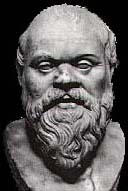 Freshman Studies
Freshman Studies
Winter Term, Section 02D
Freshman Studies
Winter Term, Section 02D
1. Is this book a novel, a personal memoir, a social treatise, or one of aesthetic criticism? 2. What is "modernism," and why do you think this work is often classed as a leading example of it? 3. Are there unusual conventions and techniques in the work that surprise or even confuse you? 4. Given Woolf's imaginative liberties in this book, is it ultimately one of fiction or non-fiction? 5. Why does Woolf claim the work reflects the the experience of a fictional Mary variously named? 6. What information are readers given about this character and how are we to understand her? 7. Could Woolf be implying that personal development like art entails imaginative self invention? 8. What seems to be Woolf's understanding of "truth" and our ability to observe or reflect it? 9. Compare Woolf's view of the relationship life and art must bear on truth with that of Plato? 10. Do you think there are unchanging "Truths" upon which we must model our behavior and thought? 11. What were the circumstances overall as well as immediate that led Woolf to write this book? 12. To whom was the message in the book primarily intended and why? 13. What appears to be the central problem that having a room of one's own solves? 14. How may the historical events and social context of her time have affected this problem? 15. What is the point of focusing on places that inspire "Mary" to think or that confuse her? 16. Do you agree with Woolf that there are masculine as opposed to feminine spaces? 17. Why does Woolf say "it is worse perhaps to be locked in" rather than locked out of such places? 18. Are conventional masculine and feminine roles similar " spaces" into which people are locked? 19. How does Woolf seem to regard the feminist movement of her day: was she herself a feminist? 20. Overall is this work more concerned with women's position in society or opportunities for individuals? 21. How about you: do you believe society should stress collective or individual enhancement? 22. What kind of writing or works does Woolf seem to prize the most? 23. What literary standards or premises does she seem to rely on in making judgments about writers? 24. How does Woolf characterize "women's writing" of her own and earlier times? 25. Do you agree with Woolf's premise that women have historically written differently from men? 26. What would explain or account for these differences if they do exist? 27. How would you explain Woolf's idea of androgyny in your own words? What of an androgynous writer? 28. Does such androgyny exclude all gender based behavior--or include both male and female forms? 29. Might this work be an effort to wed a feminine style or approach with a masculine one? In what way? 30. After reflecting on these questions, whom do you think Woolf is trying to liberate--and from what?
|